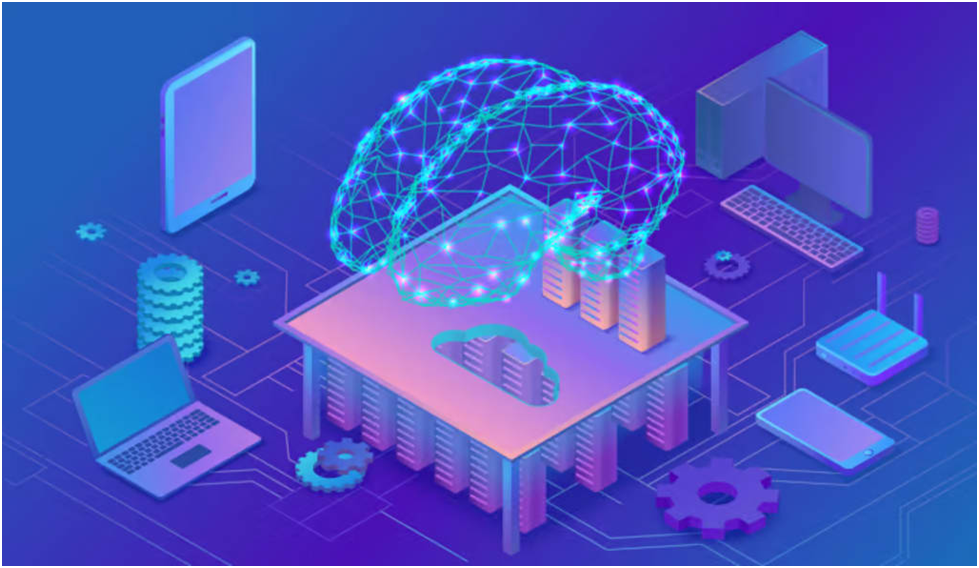
The convergence of 5G, artificial intelligence (AI), and quantum computing is revolutionizing mobile technology. As 5G delivers lightning-fast speeds, AI enhances personalization and security, while quantum computing introduces groundbreaking encryption and problem-solving capabilities.
Together, these technologies create a more connected, secure, and personalized mobile experience. From blazing-fast streaming to intelligent apps and unprecedented security, the impact of this convergence is reshaping how users engage with mobile devices.
The Power of 5G in Mobile Connectivity
5G technology is transforming mobile experiences with ultra-fast speeds, low latency, and increased network capacity. These advancements allow users to stream 4K video, participate in real-time multiplayer gaming, and download large files in seconds. 5G’s capability to handle a massive number of connected devices is unlocking the potential for smart cities, IoT, and autonomous vehicles.
Mobile users are now able to access previously unimaginable levels of performance, paving the way for immersive augmented reality (AR) and virtual reality (VR) applications on the go.
The introduction of 5G is making mobile data transfer faster than ever, with speeds reaching up to 10 Gbps, significantly outpacing 4G LTE networks. This leap in speed allows for instantaneous downloads of large files like movies and software updates, even in crowded areas. The efficiency of 5G networks ensures minimal lag, enabling smoother experiences for users engaged in data-intensive applications, such as cloud gaming and remote work.
AI Revolutionizing Mobile Personalization
AI is playing a critical role in shaping personalized user experiences on mobile devices. By learning from user behavior, AI adapts interfaces, recommends content, and offers personalized suggestions that enhance usability and engagement. In mobile apps, AI-driven algorithms are continuously improving personalization, making interactions more seamless and relevant.
AI’s ability to predict user preferences and optimize app experiences has led to more intuitive app navigation and tailored recommendations.
AI is not only transforming personalization but also enhancing mobile security. AI algorithms analyze large datasets in real-time to detect potential threats, learning from patterns to anticipate and prevent cyberattacks.
This technology is used by financial institutions and mobile banking apps to identify fraudulent transactions and protect users. As mobile threats become more sophisticated, AI’s role in ensuring security is increasingly vital, safeguarding personal data and sensitive information.
Quantum Computing’s Role in Mobile Encryption
Quantum computing is introducing an entirely new level of encryption and problem-solving capabilities that traditional computing systems struggle to match. By leveraging quantum bits, or qubits, quantum computers can solve complex problems at unprecedented speeds, which can significantly enhance mobile encryption methods.
The application of quantum encryption in mobile devices will secure communication channels, protect user data, and ensure privacy, even against the most advanced hacking attempts.
Quantum encryption leverages the principles of quantum mechanics to create clearly unbreakable codes. Quantum key distribution (QKD) ensures that data transmitted between mobile devices is secure from eavesdroppers.
This advancement is especially critical for sectors that handle sensitive information, such as government agencies, healthcare, and financial institutions, providing peace of mind to users in a world where cybersecurity threats are on the rise.
How 5G, AI, and Quantum Computing Converge in Mobile Experiences
The convergence of 5G, AI, and quantum computing is unlocking transformative experiences for mobile users. The ultra-fast connectivity of 5G allows AI-powered apps to respond in real-time, creating more interactive and engaging experiences.
Quantum computing’s encryption capabilities ensure that this data exchange remains secure. Together, these technologies enable applications such as real-time language translation, interactive gaming, and autonomous driving, fundamentally changing how people interact with their devices.
With 5G’s low latency and AI’s adaptive algorithms, mobile gaming is becoming more immersive than ever before. Players can now enjoy real-time multiplayer games without lag, while AI opponents provide personalized gameplay experiences tailored to individual skill levels.
Interestingly, Ontario mobile online casino apps are implementing AI and 5G technologies together, providing immersive gaming experiences with real-time multiplayer features and AI-generated opponents for personalized gameplay.
Transforming Mobile Healthcare with 5G, AI, and Quantum Computing
In the healthcare sector, the integration of 5G, AI, and quantum computing is revolutionizing mobile medical applications. Remote diagnostics, telemedicine, and real-time health monitoring have all become more efficient and effective thanks to these technologies.
AI algorithms analyze health data from wearable devices, while 5G ensures rapid data transmission to healthcare providers. Quantum computing provides enhanced security for patient records, ensuring that sensitive health information is protected against potential breaches.
AI is transforming the healthcare experience by enabling mobile apps to diagnose conditions based on user-provided symptoms and medical history. By analyzing large datasets, AI helps medical professionals detect patterns that may be invisible to the human eye. Quantum encryption further secures these AI-driven healthcare solutions, ensuring that patient data remains confidential and protected from cyber threats.
Financial Services on Mobile: The 5G, AI, and Quantum Impact
The financial services industry is seeing a significant shift as 5G, AI, and quantum computing enhance mobile banking and payment platforms. AI-driven chatbots offer personalized customer service, while quantum computing secures financial transactions with powerful encryption techniques.
Mobile banking apps can now process transactions at lightning speed, providing users with seamless and secure access to their accounts, investments, and payment options.
Quantum computing is enhancing encryption methods, making financial transactions conducted over mobile apps more secure than ever. Quantum-based encryption ensures that sensitive data, such as account numbers and transaction details, are protected from increasingly sophisticated cyberattacks. This heightened level of security offers users confidence in mobile banking and financial services.
The Future of Mobile Experiences
The combination of 5G, AI, and quantum computing is just the beginning of a new era for mobile experiences. As these technologies continue to evolve, we can expect even more innovations in fields like entertainment, education, and commerce. With ultra-fast connectivity, intelligent personalization, and unbreakable security, the future of mobile technology will offer more engaging, efficient, and secure experiences for users across the globe.
The convergence of these three technologies paves the way for endless possibilities in mobile applications. Developers are leveraging the capabilities of 5G, Artificial Intelligence (AI), and quantum computing to create innovative apps that transform industries. From AR-enhanced shopping experiences to AI-driven educational platforms, the future of mobile innovation promises to change how people interact with technology in everyday life.







